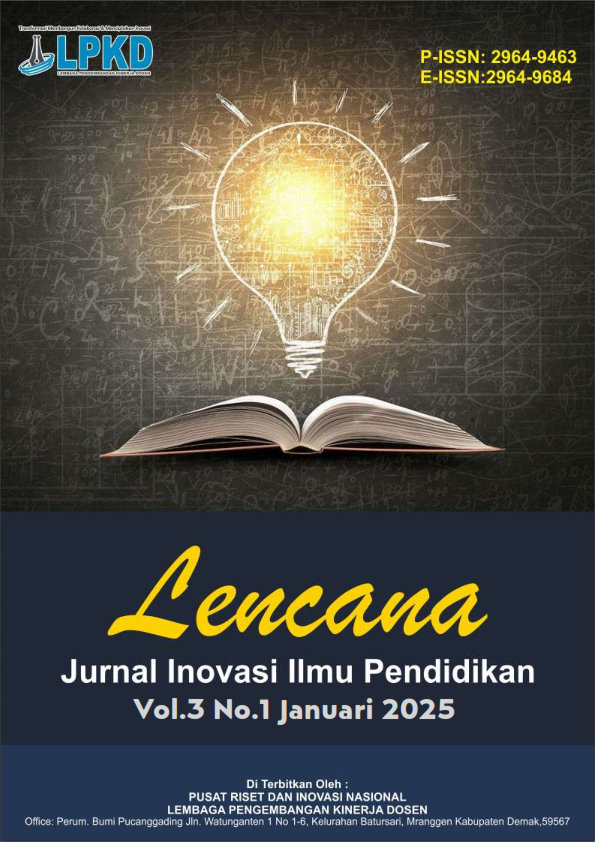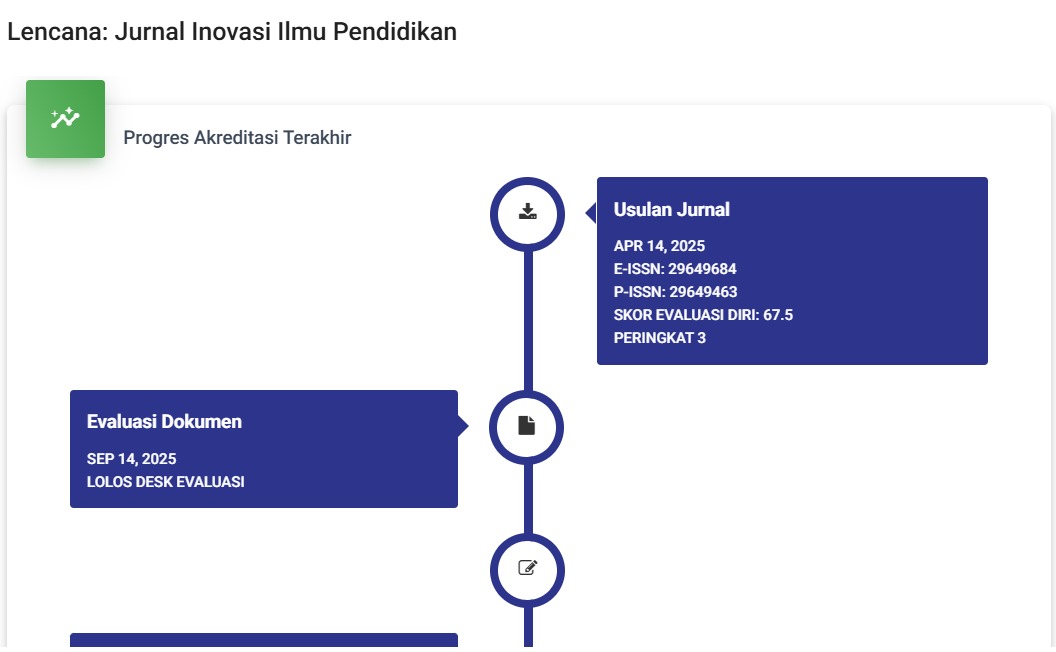Sistem Pendidikan di Korea Selatan : Struktur, Tahapan Pendidikan, Kurikulum, Perbandingan Pendidikan, Inovasi dan Tantangan
DOI:
https://doi.org/10.55606/lencana.v3i1.4583Keywords:
Education, System, South Korea, ReformAbstract
The South Korean education system is renowned for its structured organization and focus on high academic achievement. Its curriculum incorporates modern technology to enhance the learning experience, but high academic pressure poses significant challenges, particularly concerning students’ mental well-being. Compared to Indonesia, which adopts a more holistic approach through the Merdeka Curriculum, South Korea excels in producing globally competitive students. This article explores the comparison of the two education systems, highlighting innovations, challenges, and reforms needed to create inclusive and sustainable education.
Downloads
References
Asyikin, N., Afniha, A., & Chanifuddin, Ch. (2024). Pendidikan moral di era digital: Membangun karakter tangguh di tengah tantangan modern. Volume 9, Nomor 5, Tahun 2024, Halaman 80-88.
Chol, K., & Lee, J. (2018). Understanding the Korean educational system: Historical context and current trends. Asia Pacific Journal of Education, 38(1), 1–15.
Choi, H., & Lee, J. (2020). The impact of academic stress on mental health among Korean students: A study of high school students. Journal of Educational Psychology, 112(3), 500–512.
Choi, S., & Kim, Y. (2021). Digital literacy and its impact on academic achievement among Korean students: A comparative study between urban and rural areas. Journal of Educational Computing Research, 59(5), 1035–1058.
Darmawan, D. (2016). Pendidikan Ki Hajar Dewantara dalam konteks pendidikan nasional. Jurnal Ilmiah Pendidikan, 5(2), 123–135.
Departemen Pendidikan dan Kebudayaan Republik Indonesia. (1989). Pedoman umum program pembinaan mutu pendidikan dasar dan menengah. Jakarta: Depdikbud RI.
Jung, H., & Lee, Y. (2021). Bridging the digital divide in education: Challenges and opportunities in rural areas of South Korea. International Journal of Educational Development, 87, 102451.
Kim, D., & Park, J. (2020). The role of internet-based learning in enhancing student engagement in South Korean higher education. Asian Journal of Education and Training, 6(4), 525–531.
Kim, H., & Lee, M. (2020). Exploring the relationship between technology use and academic performance among Korean high school students: A structural equation modeling approach. Educational Technology Research and Development, 68(6), 3457–3476.
Kim, J., & Lee, H. (2020). The structure of the South Korean education system: An overview. Asian Education and Development Studies, 9(1), 45–58.
Kim, S., & Lee, J. (2022). The future of education in South Korea: Innovations and challenges ahead. Educational Research for Policy and Practice, 21(1), 45–60.
Kim, S., Lee, J., & Park, H. (2022). Reforming the Korean education system: Balancing academics and creativity in schools. Educational Review, 74(2), 215–232.
Kim, S., & Yoon, H. (2022). The future of education in South Korea: Innovations and challenges ahead. Educational Research for Policy and Practice, 21(1), 45–60.
Lee, C., & Choi, Y. (2019). The effects of educational technology on student learning outcomes in South Korea: A meta-analysis. Computers & Education, 129, 1–12.
Lee, J., Kim, S., & Park, H. (2021). The integration of artificial intelligence in education: Opportunities and challenges in South Korea. Journal of Educational Technology Systems, 49(2), 123–145.
Lee, S. (2018). Educational reform in South Korea: The role of the government and educational institutions. International Journal of Educational Research, 92, 124–130.
OECD. (2020). Education at a glance: OECD indicators. OECD Publishing.
Park, J., & Jung, H. (2020). The influence of parental involvement on academic achievement in South Korean adolescents: The mediating role of academic stress and self-efficacy. Youth & Society, 52(6), 927–949.
Park, Y. (2019). The impact of curriculum changes on student performance in South Korea: A longitudinal study. Educational Studies, 45(2), 123–135.
Park, Y., & Kim, J. (2019). Academic pressure and its effects on Korean students' mental health: A review of the literature. Korean Journal of Child Studies, 40(4), 123–138.
Panggarti, U., Zumaeroh, Z., Purnomo, S. D., & Retnowati, E. (2024). Analisis perbandingan kebijakan pendidikan di Asia Timur: Studi kasus Korea Selatan dan Indonesia. Jurnal Kebijakan Publik, 8(2), 101–115.
Ryu, S., & Choi, J. (2021). Trends in Korean education policy and their implications for future reforms. Korean Journal of Educational Policy, 18(3), 67–89.
Shin, H., & Kim, D. (2017). The effectiveness of the Korean education system: A comparative analysis with other countries. Comparative Education Review, 01(4), 509–533.
Song, J., & Lee, S. (2019). Challenges and opportunities in Korean higher education: A focus on globalization and internationalization. Journal of Studies in International Education, 23(2), 112–127.
Ulfatin, N. (2022). Studi komparatif sistem pendidikan di Korea Selatan dengan Indonesia. COMTE: Journal of Sociology Research and Education, 1(1), 17–25.
Wulandari, A., Ardeni, I., Hilmin, H., & Novianti, R. (2023). Perbandingan pendidikan Korea Selatan dan Indonesia: Kualitas dan tantangan. Jurnal Pembangunan Sosial, 12(1), 45–59.
Yoon, H., & Park, M. (2020). The role of technology in enhancing learning outcomes in Korean schools: A review of recent research. Computers & Education, 149.
Downloads
Published
How to Cite
Issue
Section
License
Copyright (c) 2024 Lencana: Jurnal Inovasi Ilmu Pendidikan

This work is licensed under a Creative Commons Attribution-ShareAlike 4.0 International License.








